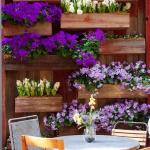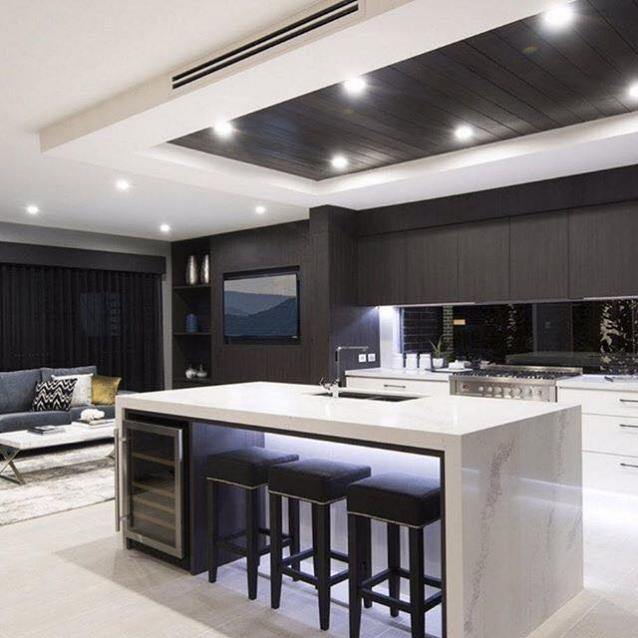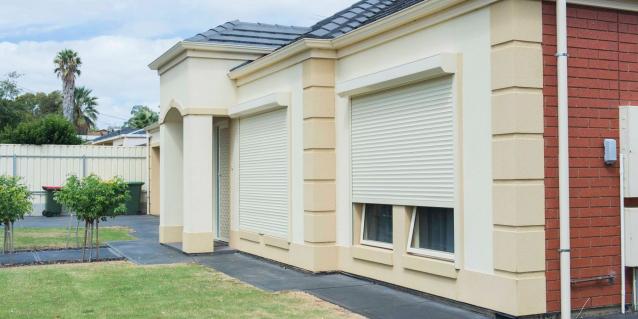
Beautify your small yard with a veggie patch
By HOUSPECT Building and Pest Inspections|August 29, 2018
Have you always assumed that your yard is too small for a veggie patch? If you are like the thousands of other South Australian homeowners who don’t have much space to work with, a veggie garden probably feels like a pipedream.
Housing blocks are a hot commodity, which is why developers want to capitalise as much as possible on the space they can grab. For homeowners, that often means settling for a smaller block because the price is right.
Small Yard Space
No doubt, small yards present challenges when it comes to creating a veggie patch. However, the space is only a limitation if you do not think outside of the box. We live in a three-dimensional world, so the first thing you need to do is stop thinking of space as only that which is available at ground level. If you can fit a shed in your yard, planting a veggie patch isn’t out of the question.
Raised veggie patches better utilize space because you can stack them according to the veggies you are planting. By learning about the root systems and how large veggies grow it becomes easier to set up an elevated planting system, without crowding your veggies or starving the root systems of space to grow.
You should also visit your local garden centre for flowerbeds or shop around online. There are bedding systems that are designed for small yards as there is a large market for making the most of limited space.
Hanging Gardens or Vertical Gardens
Those who live in maisonettes or high-rise apartments should not be deprived of a garden either. You may need to check your strata bylaws before planting. However, once you get the go ahead there is a lot you can do with just balcony and wall space.
Remember, there are plenty of veggies that will thrive in pots. Some good examples of this are lettuce, tomatoes, potatoes, Asian greens, spinach, peas and cucumber. Again, it’s all about the root system and the environment in which the veggies will thrive.
Walls can even be transformed into vertical gardens. You can buy plant frames that are perfectly suited for smaller yards. Or, if you have the skills, custom build a frame that works for your dimensions and any other limitations you may face.
Explore your Limits
Okay, so you have never grown a veggie patch before. Looking after plants and veggies does take some work. The key to success is exploring what you can do and it’s a good idea to speak to your local nursery for advice. It is perfectly fine to make mistakes, so long as you learn from them for the next season.
In all cases, aim to plant veggie patches or a garden that compliments your home. This will improve the aesthetics of your property and, by extension its curb appeal. If it ever comes time to sell your home, your added features could change a buyer’s perception that the yard is too small to accommodate a garden.
Best plants and veggies to be planted in Spring / Summer:
Flowers: Vegetables:
Dahlia Lettuce Tomato
Frangipani Spinach Sweet Potato
Gardenia Broccoli Basil
Kangaroo Paw Carrots Chives
Grevillea Eggplants Parsley
Bougainvillea Capsicum Sage
Lavender Cucumber Thyme
Bottle Brush Rhubarb
Banksia Zucchini
If you are planning on creating a unique and functional garden that requires building work, reach out to Houspect in South Australia for expert inspection and reports.
Housing blocks are a hot commodity, which is why developers want to capitalise as much as possible on the space they can grab. For homeowners, that often means settling for a smaller block because the price is right.
Small Yard Space
No doubt, small yards present challenges when it comes to creating a veggie patch. However, the space is only a limitation if you do not think outside of the box. We live in a three-dimensional world, so the first thing you need to do is stop thinking of space as only that which is available at ground level. If you can fit a shed in your yard, planting a veggie patch isn’t out of the question.
Raised veggie patches better utilize space because you can stack them according to the veggies you are planting. By learning about the root systems and how large veggies grow it becomes easier to set up an elevated planting system, without crowding your veggies or starving the root systems of space to grow.
You should also visit your local garden centre for flowerbeds or shop around online. There are bedding systems that are designed for small yards as there is a large market for making the most of limited space.
Hanging Gardens or Vertical Gardens
Those who live in maisonettes or high-rise apartments should not be deprived of a garden either. You may need to check your strata bylaws before planting. However, once you get the go ahead there is a lot you can do with just balcony and wall space.
Remember, there are plenty of veggies that will thrive in pots. Some good examples of this are lettuce, tomatoes, potatoes, Asian greens, spinach, peas and cucumber. Again, it’s all about the root system and the environment in which the veggies will thrive.
Walls can even be transformed into vertical gardens. You can buy plant frames that are perfectly suited for smaller yards. Or, if you have the skills, custom build a frame that works for your dimensions and any other limitations you may face.
Explore your Limits
Okay, so you have never grown a veggie patch before. Looking after plants and veggies does take some work. The key to success is exploring what you can do and it’s a good idea to speak to your local nursery for advice. It is perfectly fine to make mistakes, so long as you learn from them for the next season.
In all cases, aim to plant veggie patches or a garden that compliments your home. This will improve the aesthetics of your property and, by extension its curb appeal. If it ever comes time to sell your home, your added features could change a buyer’s perception that the yard is too small to accommodate a garden.
Best plants and veggies to be planted in Spring / Summer:
Flowers: Vegetables:
Dahlia Lettuce Tomato
Frangipani Spinach Sweet Potato
Gardenia Broccoli Basil
Kangaroo Paw Carrots Chives
Grevillea Eggplants Parsley
Bougainvillea Capsicum Sage
Lavender Cucumber Thyme
Bottle Brush Rhubarb
Banksia Zucchini
If you are planning on creating a unique and functional garden that requires building work, reach out to Houspect in South Australia for expert inspection and reports.



